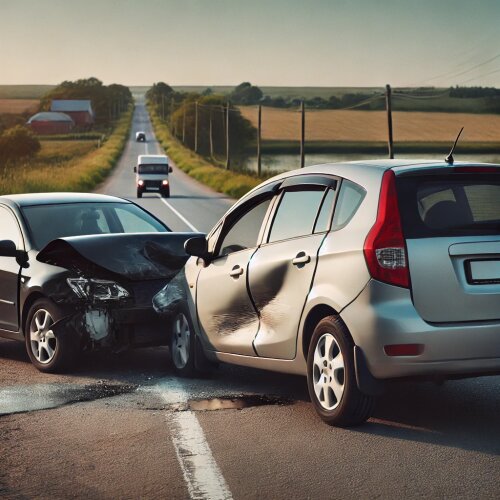Best Drug Crime Lawyers in Adeje
Share your needs with us, get contacted by law firms.
Free. Takes 2 min.
List of the best lawyers in Adeje, Spain
About Drug Crime Law in Adeje, Spain
Adeje, a municipality located in the south of Tenerife in Spain’s Canary Islands, follows Spanish national law regarding drug crime. Drug crime in Adeje includes a range of offenses such as the possession, trafficking, cultivation, and distribution of controlled substances. Spanish law strictly regulates drugs, distinguishing between substances for personal use and those intended for distribution. Local authorities in Adeje, including the Policía Local and Guardia Civil, work alongside national bodies to enforce these laws, with significant consequences for those found in violation.
Why You May Need a Lawyer
Facing drug crime allegations in Adeje can have severe legal and personal repercussions. A lawyer with experience in drug crime cases can help in various situations, including:
- Being arrested or detained by the police for drug possession or trafficking
- Receiving a summons to appear in court related to a drug crime
- Having your property searched or seized under suspicion of involvement with drugs
- Accusations of importation, exportation, or storage of controlled substances
- Allegations of cultivating cannabis or other illegal plants
- Helping non-Spanish speakers understand local legislation and their legal rights
- Being subject to preventative measures such as travel bans or asset freezes
Legal professionals can assist by explaining your rights, representing you in court, negotiating with prosecutors, and ensuring that due process is followed throughout the investigation and trial.
Local Laws Overview
Drug crime in Spain is governed primarily by the Spanish Penal Code and relevant health and safety laws. Adeje adheres to the following key aspects:
- Drug Possession: Possession of small amounts of drugs for personal use is typically decriminalized but still subject to administrative penalties, such as fines and confiscation, if found in public spaces.
- Drug Trafficking: The sale, distribution, transportation, and possession with intent to distribute of any quantity of drugs are criminal offenses and can result in imprisonment.
- Cultivation: Cultivating plants like cannabis at home is illegal unless proven to be for personal use and not intended for sale or distribution.
- Public Consumption: Using drugs in public places is not a criminal offense but can lead to fines and confiscation of the substance.
- Controlled Substances: Laws classify drugs into categories, with harsher penalties for more dangerous substances.
- Youth Protection: Distribution to minors or within certain distances from schools and parks involves increased penalties.
- Tourists and Foreign Residents: Non-residents are subject to the same laws and can face deportation if found guilty of serious drug offenses.
Frequently Asked Questions
What happens if I am caught with a small amount of drugs in Adeje?
If you are found with a small quantity for personal use in a public area, authorities may issue a fine and confiscate the drugs, but you will not receive a criminal record. Possession in private spaces may not attract penalties, though large or suspicious amounts can lead to further investigation.
Is cannabis legal in Adeje?
Cannabis is illegal for recreational use, though possession of small amounts for personal use in private is generally tolerated. Public possession, cultivation, and sale remain criminal offenses under Spanish law.
What are the penalties for drug trafficking?
Penalties for trafficking vary based on the type and quantity of drugs involved. Trafficking can lead to lengthy prison sentences and significant fines. Aggravating factors, such as selling to minors, can increase the severity of the punishment.
Can I be deported for a drug crime if I am not a Spanish citizen?
Yes, non-Spanish nationals convicted of serious drug offenses could face deportation and bans on re-entry to Spain or other Schengen countries.
Will I get a criminal record for drug possession?
Possession for personal use in public areas results in administrative sanctions and no criminal record. However, possession with intent to distribute or large quantities can lead to criminal charges and a permanent record.
What should I do if I am arrested for a drug offense?
Ask for a lawyer immediately and exercise your right to remain silent until you have legal representation. Do not sign any documents you do not understand.
Are drug crimes investigated differently in tourist areas like Adeje?
While enforcement practices may reflect the high volume of tourists, the application of the law remains consistent. Authorities may be more vigilant in hotspots for tourism.
Can minors be charged with drug crimes?
Yes, minors can face administrative or criminal proceedings based on the gravity of the offense, but juvenile justice procedures and penalties may differ from those applied to adults.
Is there a difference between 'hard' and 'soft' drugs in sentencing?
Spanish law distinguishes between substances, with harsher penalties for those considered to be more dangerous, such as cocaine or heroin, compared to cannabis.
Can I have my case reviewed if I think my rights were violated during a drug investigation?
Yes, you have the right to challenge unlawful searches, seizures, or detentions through legal procedures. A lawyer can help assess and appeal any violations.
Additional Resources
Individuals seeking help with drug crime issues in Adeje may benefit from the following resources:
- Spanish National Police: For crime reports and public safety information
- Guardia Civil: For rural and specialized law enforcement
- Juzgados de Instrucción (Local Courts): Handling criminal cases
- Bar Association of Santa Cruz de Tenerife: For legal assistance and finding qualified lawyers
- Instituto Nacional de Toxicología y Ciencias Forenses: For forensic and toxicology support
- Ministry of Justice: For information on the justice system and your rights as a defendant
- Embassies and Consulates: For foreign nationals needing support
Next Steps
If you are facing a drug crime allegation or investigation in Adeje, it is important to act quickly and protect your legal rights. Here is how to proceed:
- Contact a qualified criminal defense lawyer experienced in Spanish drug laws.
- Gather any documents, evidence, or records related to your case.
- Do not discuss your case with anyone, including the police, before consulting with your lawyer.
- Attend all legal appointments and court hearings on time.
- Follow your lawyer’s advice regarding statements, bail, or plea offers.
- If you are a non-Spanish citizen, inform your consulate or embassy.
Seeking professional legal advice as soon as possible is the best way to ensure your rights are protected and to receive guidance through the legal process in Adeje, Spain.
Lawzana helps you find the best lawyers and law firms in Adeje through a curated and pre-screened list of qualified legal professionals. Our platform offers rankings and detailed profiles of attorneys and law firms, allowing you to compare based on practice areas, including Drug Crime, experience, and client feedback.
Each profile includes a description of the firm's areas of practice, client reviews, team members and partners, year of establishment, spoken languages, office locations, contact information, social media presence, and any published articles or resources. Most firms on our platform speak English and are experienced in both local and international legal matters.
Get a quote from top-rated law firms in Adeje, Spain — quickly, securely, and without unnecessary hassle.
Disclaimer:
The information provided on this page is for general informational purposes only and does not constitute legal advice. While we strive to ensure the accuracy and relevance of the content, legal information may change over time, and interpretations of the law can vary. You should always consult with a qualified legal professional for advice specific to your situation.
We disclaim all liability for actions taken or not taken based on the content of this page. If you believe any information is incorrect or outdated, please contact us, and we will review and update it where appropriate.









